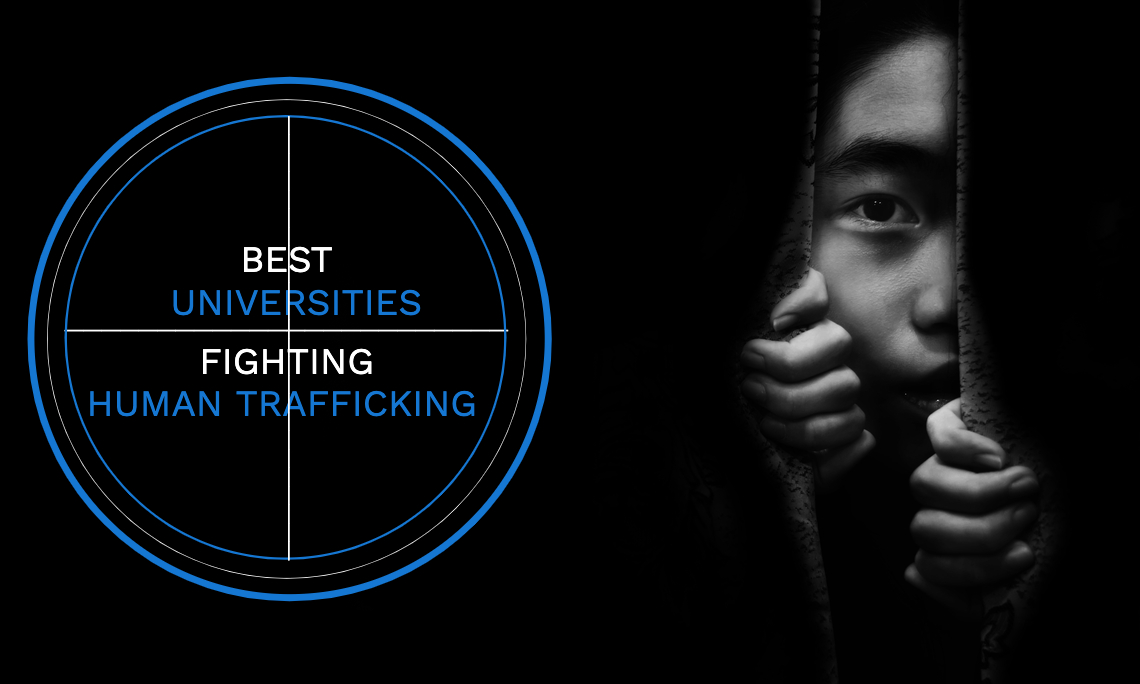The Best Universities Fighting Human Trafficking is a list of universities in the U.S. who have in the past or currently are taking on human trafficking.
These universities and colleges are studying and fighting human trafficking in various important ways.
They offer either degrees or research or initiatives and other important measures to fight human trafficking. As such, these schools may offer academic programs, resources, and initiatives for understanding, tracking, and fighting human trafficking locally, federally, and internationally.
The scope of human trafficking can and often does cross international borders. But it is also a domestic issue facing the United States.
The first five universities in this list offer various degrees in Human Trafficking in particular.
Many tens of millions of people are still enduring slavery across the world. If you want to join the fight, see our related online degrees for fighting human trafficking.
Related degree programs include:
- Human Rights Studies
- Criminal Justice
- Homeland Security
- Law School (including International Law)
- Forensic Science (including Digital Forensics and Forensic Psychology)
- Public Health
- Public Administration
- Social Work
- Social Justice
Featured Online Degrees:
Colleges may download our badge.
The Best Universities Fighting Human Trafficking
These universities and colleges are not ranked by any order of importance or by any other criteria. The universities that offer degrees or certificates make up the first five positions in this list.
The George Washington University
Washington, D.C.
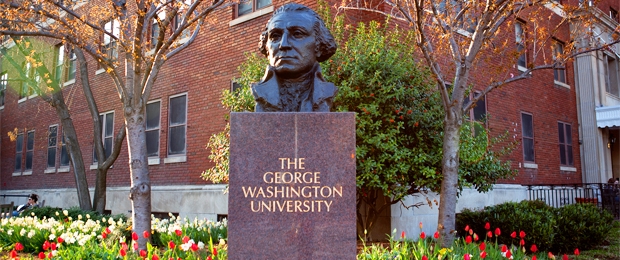
George Washington University (GWU) offers a Master of Arts in International Development Studies.
Students must complete a total of 40 credits for the program including:
- 10 credits of core courses
- 12 credits of Analytical courses
- 18 credits of Specialization courses
Students have 12 areas of specialization to select from including:
- Conflict and Development
- Culture, Society, and Development
- Gender and Development
- Humanitarian Assistance
Students must complete a minimum of 18 credits within a specialization area, leaving plenty of room to customize their educational experience. Students who wish to focus on the human trafficking crisis may take courses such as:
- Human Trafficking
- Care of Children in Complex Emergencies
- Violence, Gender and Humanitarian Assistance
- Gender, Disaster and Development
Completing a thesis is optional. The program offers start dates in both the Fall and the Spring.
Additionally, GWU offers the Graduate Certificate in Global Gender Policy. This is a 15-credits program that Master's students can also take as an area of specialization.
There is one three-credit required course, the other 12 credits students may choose from a list of supporting courses. This leaves ample opportunity for students to specialize in the human trafficking crisis. Some of these classes include:
- Sexuality and the Law
- International Human Rights of Women
- The Sex Industry
- Race, Gender, and Class
Both of these programs are available through the Elliot School of International Affairs.
Admissions: Students interested in the Master of Arts program must submit prior academic transcripts, two letters of recommendation, a resume or CV, and a statement of purpose. Students must also have previous course work complete in a secondary language. GRE or GMAT testing scores are optional.
University of Denver
Josef Korbel School of International Studies
Denver, Colorado
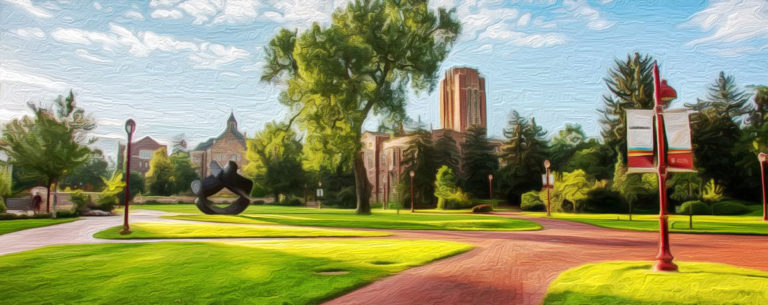
Through the Josef Korbel School of International Studies at the University of Denver, students may enroll in the Master of Arts program in International Human Rights.
This program focuses on human dignity and human rights through the study of history, social movements, and institutions. Students must complete at least four classes from three different areas of specialization.
Specialization options are:
- Economic Development and Health Rights
- Security Rights and Humanitarian Assistance
- Region or Countries
- Human Rights Themes
Students must also complete two classes from:
- International Studies Core Classes
- Core Human Rights Classes
- Methods and Skills Courses
The program encourages students to participate in field trips and internships for hands-on experience. Students have access to three centers for research and networking opportunities:
- Center on Human Rights Education - emphasized the connection between economic, social, cultural, and human rights.
- Human Trafficking Center - uses data driven research and community connections to understand the causes, conditions, and solutions to human trafficking
- Human Rights and Human Welfare - an online academic journal offering a range of scholarly content
Middlebury Institute of International Studies at Monterey
Monterey, CA
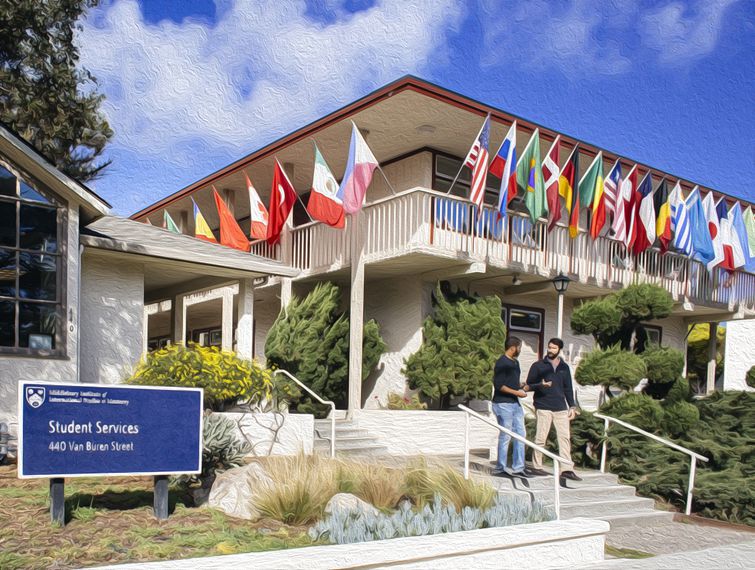
Middlebury Institute is a private school offering mainly graduate and professional training in a multilingual environment. Though the school enrolls a small student body of less than 1,000 pupils, there are 53 countries and 45 native languages represented. This diversity lends itself to a cross-cultural experience in every class.
The Institute offers the Master of Arts in International Policy and Development. This program requires a total of 60 credits. Most students complete this over four semesters.
The International Policy and Development (IPD) program is very similar to the Master of Public Administration program, sharing faculty and core curriculum. The IPD program offers five career-oriented specializations:
- Intercultural Competence
- Migration and Global Governance
- Evaluation and Analytics
- Financial Crime Management
- Conflict Resolution and Social Justice
The Conflict Resolution and Social Justice specialization in particular benefits students seeking to study the human trafficking crisis.
This specialization emphasizes the benefits of conflict intervention, strengthening personal ethics as they relate to challenging social situations, and developing professional skills including communication, negotiation, and mediation.
Possible elective courses include:
- Women and War
- Human Trafficking
- Fieldwork and Reporting
- Peace Education for the 21st Century (taught in Spanish)
Students complete the MA program with a final professional practicum.
Columbia Southern University
Orange Beach, AL
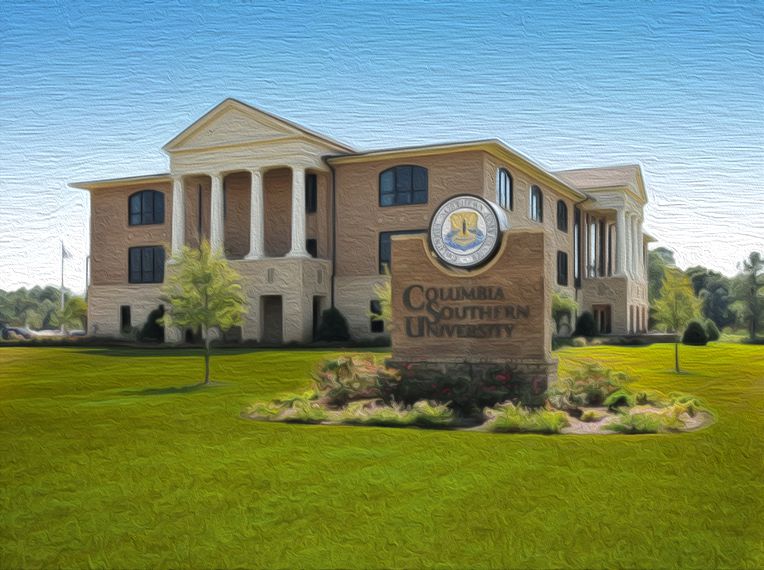
As a part of the Continuing Education program, Columbia Southern University offers an online Human Trafficking Investigation Certificate.
This certificate program is offered in partnership with the Human Trafficking Investigations and Training Institute (HTITI). HTITI is a company that provides educational and legal serves, all dedicated to Anti-Human Trafficking solutions.
The Human Trafficking Investigation certificate requires three courses:
- Human Trafficking Awareness
- The United States Response to Human Trafficking
- Law Enforcement Investigations of Human Trafficking Crimes
These courses are available online. The completion of each course awards students with continuing education units, but not college credits. It is possible to gain college credits, however these requests are evaluated on a one-by-one basis.
Wilmington University
College of Social and Behavioral Sciences
New Castle, DE
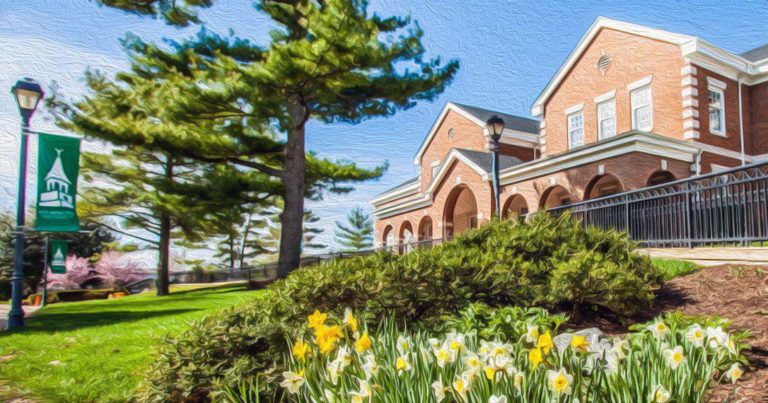
Wilmington University offers an undergraduate certificate in Human Trafficking Awareness.
The program focuses on identifying victims and advocacy, both locally and globally. In-class and online format options are available. The certificate program can benefit those who work in, or want to work in these areas:
- ER and medical professions
- Law enforcement
- Social work
- Mental health counseling
Students must complete a total of 18 credits. The required core classes are:
- Human Trafficking
- Investigating Human Trafficking
- Human Trafficking Advocacy & Change
Students may customize their learning experience through electives such as:
- Multicultural Issues in Criminal Justice
- Healthcare Emergency Management
- Introduction to Trauma-Informed Approaches
- Homelessness in America
- Step-Parenting & Blended Families
Start date: Every eight weeks
Admissions: Applicants interested in the undergraduate certificate programs must submit an application the Wilmington University with official high school transcripts.
Students already attending Wilmington University must simply contact their academic advisor to discuss adding the certificate to their current academic program.
The University of Texas at Austin
Austin, TX
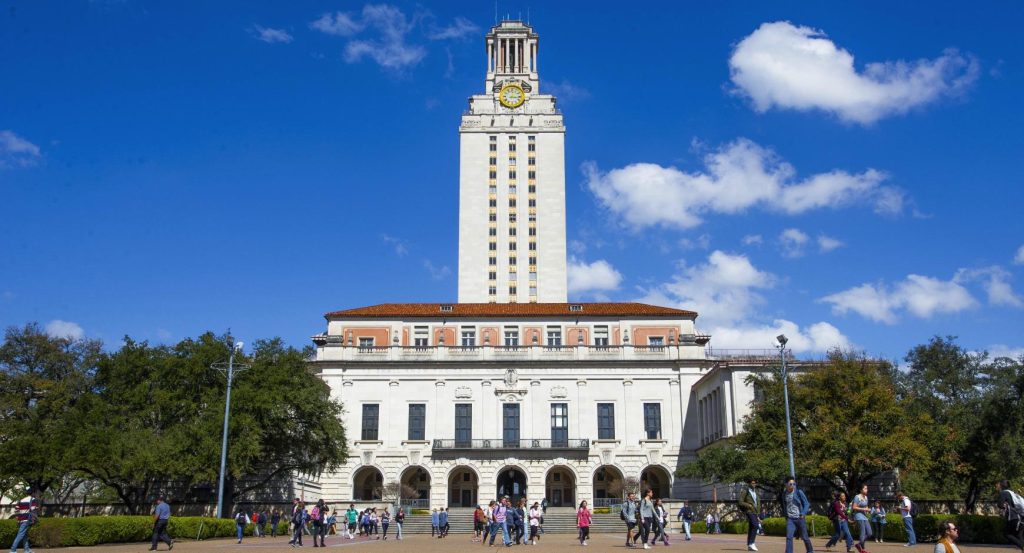
At the University of Texas at Austin, the Institute on Domestic Violence and Sexual Assault (IDVSA) is a collaboration of the Schools of Social Work, Law, and Nursing, the Bureau for Business Research, and hundreds of statewide community partners.
The institute was founded in 2001 by a small group of researchers and faculty from the Steve Hicks School of Social Work at The University of Texas at Austin, most of who had significant direct service and practice experience with survivors prior to joining the University.
Research focuses around four areas:
- Campus Sexual Assault and Misconduct
- Domestic Violence and Intimate Partner Violence
- Human Trafficking
- Sexual Assault
Human Trafficking research at the Institute focuses on the various forms of trafficking and in particular looks at who constitutes the more vulnerable targets. The Institute has become a leader in this field in the state of Texas. Some of the studies of the Institute include:
- Human Trafficking Supply Chain Networks, funded by the National Science Foundation
- Child Sex Trafficking in Texas: Experiences and Risk
- Statewide Human Trafficking Mapping Project for Texas
- Survivors of Trafficking Empowerment Program, studied in collaboration with the Refugee Services of Texas
IDVSA is instrumental in advancing knowledge and training regarding human trafficking:
- Busch-Armendariz created and continues to teach one of the first human trafficking undergraduate courses for credit in the nation, offered for about a decade.
- The institute also offers local and community-based training- across Texas and the U.S, on the ethical use of expert witnesses in human trafficking cases.
- Institute experts serve as expert witnesses in human trafficking cases
In addition, Noel Busch-Armendariz, IDVSA's Director, wrote the first U.S. human trafficking textbook Human Trafficking: Applying Research, Theory, and Case Studies. This won the Hamilton Book Award, UT's most prestigious literary prize.
The Institute offers other educational opportunities such as:
- Final Field Internships
- Graduate Research Assistantships
- Research Fellows Program
- Teaching Assistant Positions
- Shield-Ayres Advancing Social Justice Doctoral Research Fellow
Since 2001, the Institute has received over $14 million in federal, state, and local funding.
Stanford University
Stanford, CA
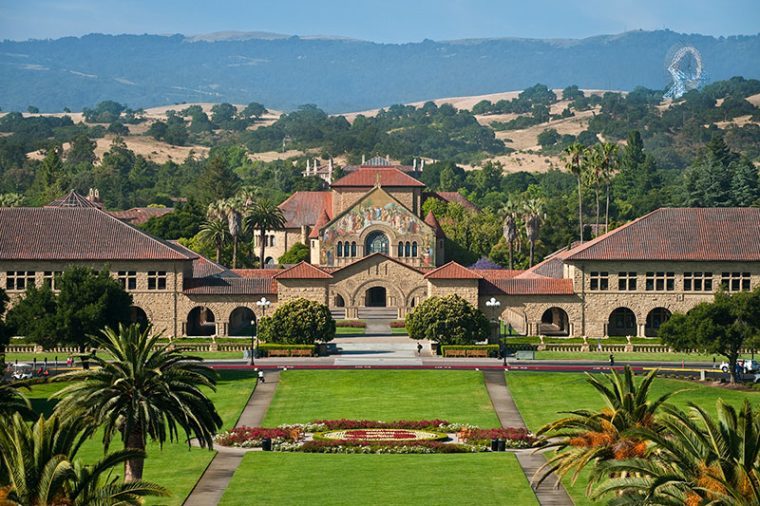
Stanford University manages the Center for Human Rights and International Justice, directed by David Cohen. As the name suggests, the center focuses on human dignity and social justice issues on a global scale.
The center traces its history back to 1999 when it was known as the War Crimes Studies Center. Four major interdisciplinary programs run out of the center:
- Rule of Law, Justice Sector Reform, Transitional Justice, and Accountability
- Human Trafficking Research
- Digital Archives and New Technologies
- Human Rights in Trauma Mental Health
The Human Trafficking Research program emphasizes research and policy advocacy, capacity building, and engagement with local partners in the US, South America, Africa, and Asia. The center co-hosts two annual events promoting research and networking:
- The annual Freedom from Slavery Forum with co-host Free the Slaves located in Washington, D.C.
- The Annual Summer Institute for International Humanitarian Law and Human Rights, with co-host the Human Rights Resource Center for ASEAN
In terms of policy advocacy in the US, the center participates in the San Francisco Mayor's Task Force on Anti-Human Trafficking and Alliance.
Arizona State University
Tempe, AZ
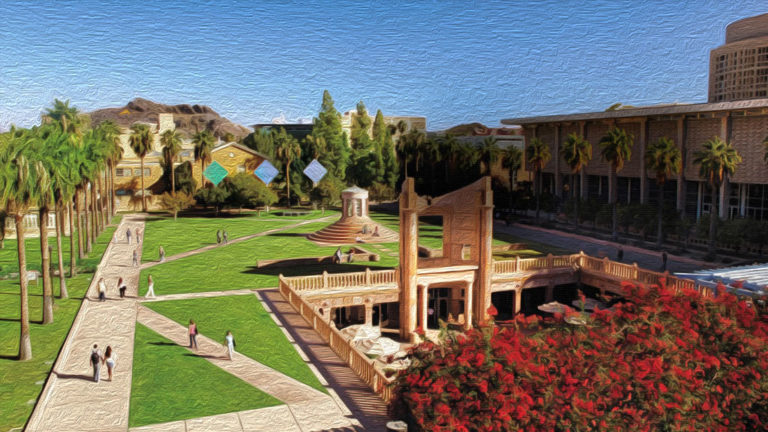
In 2013 Arizona State University opened the Office of Sex Trafficking Intervention Research. The goal was to create a centralized location for research and information sources on domestic sex trafficking.
The main STIR page offers links to resources for personnel who may be in contact with trafficked victims such as healthcare workers and law enforcement.
The STIR research page provides a collection of studies and survey information some of which include:
- Child Sex Trafficking in Las Vegas
- Sex Trafficking in Hawaii: Exploring Online Sex Buyers
- A Four Year Analysis of Labor Trafficking Cases in the U.S.
A free online training module is available with comprehensive, introductory material about recognizing risk factors, warning signs, and potential victims.
University of San Diego
San Diego, CA

The Joan B. Kroc School of Peace Studies (Kroc School) continues the visionary work of its namesake, Joan B. Kroc. As the West Coast Capital of Peace Education, its mission is to equip and empower innovative change-makers to shape more peaceful and just societies. Patricia Marquez, PhD, is the current Dean.
The Kroc School houses two globally recognized research and networking institutes:
- Kroc Institute for Peace and Justice
- Center for Peace and Commerce
One ground breaking research study produced by the Kroc School is the study of Human Trafficking in San Diego. The full Human Trafficking Study report details "The Nature and Extent of Gang Involvement in Sex Trafficking in San Diego County".
The study is considered one of the most comprehensive investigations to date on the subject and has fueled prevention efforts in San Diego. Kroc School Associate Professor Ami Carpenter, PhD was the lead investigator with Jamie Gates, PhD (from Point Loma Nazarene University) as the co-investigator. Approximately 1,200 individuals were interviewed or provided data towards the study.
Additionally, Carpenter recently helped launch a University wide initiative called Partners Against Exploitation. This multidisciplinary project seeks to prevent human trafficking and other forms of exploitation through advocacy, education, and cross-sector partnerships.
The academic programs available at the Kroc School include:
- Master of Arts in Peace and Justice
- Master of Arts in Social Innovation
- Master of Science in Conflict Management and Resolution
- JD/MAPJ Dual Degree in Law and Peace and Justice
The individual Master's programs run one to two years in length for full-time students. Part-time enrollment is also available.
Interested applicants must submit transcripts, resume, short essays (number varies by program), and two letters of recommendation. Applicants do not need to submit standardized test scores.
Applicants interested in the Master of Science program must have three years of relevant professional experience.
University of Georgia
Athens, GA
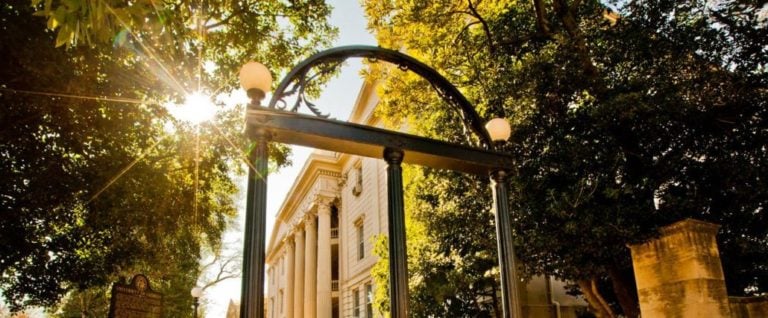
The U.S. Department of State granted the University of Georgia (UGA) $15.75 million to use towards human trafficking research and resources.
UGA will use some of the funds to increase the work of the African Programming and Research Initiative to End Slavery.
This initiative is working to end human trafficking in Sierra Leone and Guinea and is seeking to expand resources into Senegal.
Another portion of the funds will help launch the Prevalence Reduction Innovation Forum. Principal investigator of the project and Director of APRIES, David Okech hopes this forum will
The Forum had its first conference meeting early in 2020. With an increase in the number of research teams and different data collection methods, the goal is to improve the severe lack of data that currently hinders intervention programs across the globe.
Other investigators include:
- Tamora Callands
- Alex Balch from the University of Liverpool
- Lydia Aletraris
- Claire Bolton
Who is most susceptible to human trafficking?
In short, it's the vulnerable and marginalized sub-populations in society. The most susceptible can be broadly categorized along gender, socioeconomic, age, and racial lines, but there is also significant crossovers in these broad categories. In other words, human trafficking can be a crime of opportunity. Generally speaking, the most susceptible groups include:
- the poor
- runaways
- the disabled
- the homeless
- immigrants
- substance abusers
- people who've been abused
- women
- children
- mentally unwell
Read more with this helpful resource about human trafficking from trial attorneys Florin|Roebig.
University of Minnesota - Twin Cities
Twin Cities, MN

The Robert J. Jones Urban Research and Outreach Engagement Center at the University of Minnesota works publicly with urban communities on a variety of social issues. The Center's goals include:
- Improving urban education
- Raising the quality of life in urban communities
- Advancing other social issues into public awareness in the hopes of solutions
The Center promotes hands-on projects such as:
- Northside Job Creation Team
- Trauma Recovery Project
- Critical Conversations
- Sex Trading, Trafficking and Community Well-Being Initiative
The ongoing Sex Trading, Trafficking and Community Well-Being Initiative is an academic research collaborative. UROC Director of Research Lauren Martin is promoting the Initiative through local, individual, government, and corporate partnerships. The focus of the research is both national and with a special focus on North Minneapolis.
Already, the work of the Initiative has led to policy and legislative changes at the local and state levels.
Projects and reports within the Initiative include:
- Mapping the Demand: Sex Buyers in Minnesota: Full Report
- Sex Trafficking and the Super Bowl Research Brief
- Media Analysis of Print News Coverage on Prostitution and Sex Trafficking: Research Brief
- The Prostitution Project: Community-Based Research on Sex Trafficking in North Minneapolis
Georgia State University
Atlanta, Georgia
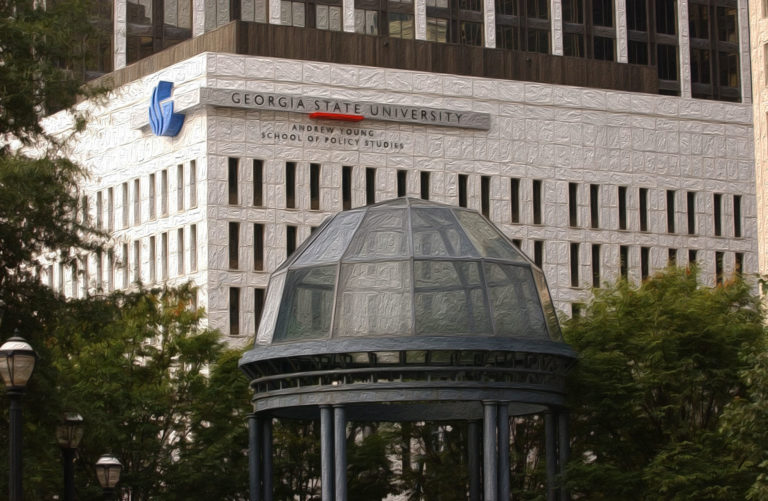
Georgia State Law professor Jonathan Todres is leading expert on human trafficking, in particular human rights and public health approaches to the issue. Todres teamed with Dr. Angela Diaz, Director of the Mount Sinai Adolescent Health Center, to research and publish a new book titled "Preventing Child Trafficking: A Public Health Approach" (also available through major distributors including Amazon).
In the book, Todres and Diaz detail the value of public health methodologies in addressing human trafficking and lay out a "toolkit" which can serve as a starting point for advancing prevention efforts.
In other research, Todres has shed light on relevant children's rights law, the role of the private sector, and other issues that are important to addressing human trafficking.
Professor Todres also teaches about human trafficking in selected courses at GSU Law.
University of South Florida
Tampa, FL
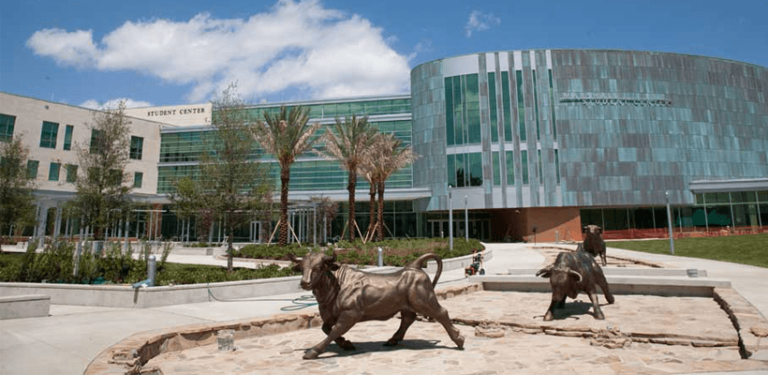
The University of South Florida (USF) has granted a Strategic Investment Award to create the Human Trafficking Risk to Resilience Research Lab.
USF granted the lab $120,000 from internal grants to cover the expenses of the research, and to allow three graduate students to participate in the project.
Criminology professor Joan Reid is the lead investigator with professors Shelly Wagers, Bryanna Fox, and Fawn Ngo as co-principal investigators. The lab emphasizes interdisciplinary researchers and community partnerships in an effort to study and combat human trafficking in the Tampa Bay, Florida area.
The first research project of the lab analyzed hundreds of suspected child sex trafficking cases compiled by Child Protective Investigators in the Pasco County Sheriff's Office.
The goal of the research was to create and analyze a variety of child sex trafficking profiles. The lab is coordinating efforts with Ken Kilian, the Director of Pasco's Child Protective Investigations.
In the future, Reid hopes to expand the scope of the lab to include research on all forms of human trafficking involving children and adults.
Reid's past experiences combating human trafficking include over 30 journal publications, including participation in a national report that was presented to Congress in 2008.
Pennsylvania State University
State College, PA
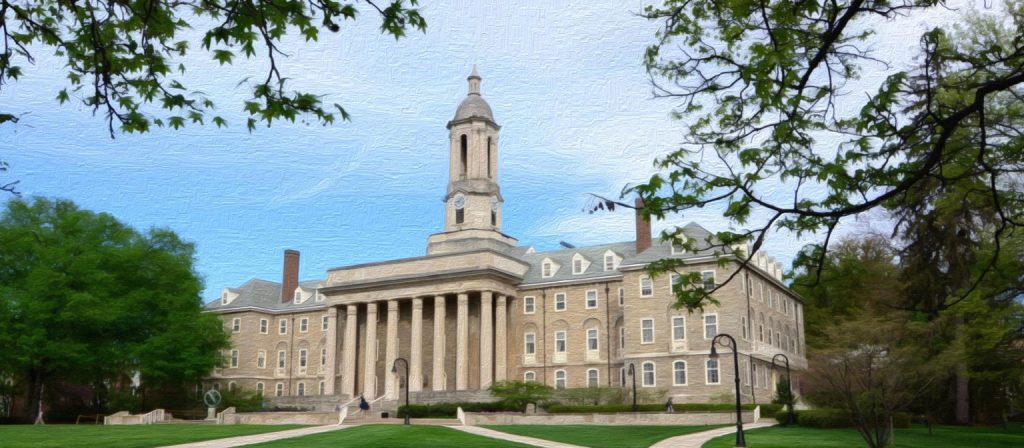
At Penn State University, Font, Miyamoto, and Pinto worked together on one particular study that examined over 2,000 reports filed with Children and Youth Services (CYS).
Most CYS cases of child abuse go unsubstantiated due to insufficient evidence. Part of the study goals were developing methods of improving CYS investigations into abuse claims. The study investigations recommended:
- Improved training
- Better mentoring and supervision
- Easier access to forensic interviewers and medical providers
At the state level, the study results recommended six key changes:
- Broaden the scope of data to beyond fatal and foster care cases. A narrow scope of data misrepresents the larger issue
- Do not delete information from 'unfounded' or 'invalid' cases. Eliminating data prevents the possibility of seeing larger patterns
- Implement a centralized screening process that involves the whole family. Focusing on a single child may overlook at-risk siblings.
- Use a centralized electronic system to store and organize data
- Improve coordination with Child Advocacy Centers across the state
- Hire more qualified employees trained in this area
Additionally, doctoral student Anna Ssentongo and colleagues of PSU created the Pennsylvania coalition against human trafficking. Launched in 2020, this diverse group of state and local agencies, including non-profit organizations, provides online support and resources to trafficking survivors.
The coalition aims to educate all those who come into contact with potential trafficking victims, increase collaboration between those who can help, and provide support for survivors. The long term goal is to end human trafficking in the state of Pennsylvania.
University of Toledo
Toledo, Ohio
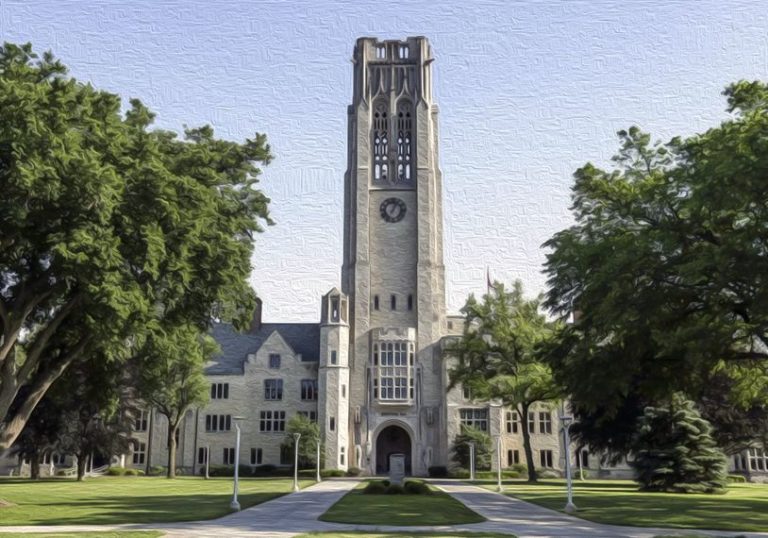
Since 2000 the University of Toledo has been at the forefront of the fight against human trafficking.
The Human Trafficking and Social Justice Institute was established to provide educational and research opportunities leading to productive community outreach and engagement.
The focus of the Institute is broad, covering both immediate needs and practical steps as well as investigating the root cause of social justice issues.
The Institute offers several resources and events including:
- The Annual International Human Trafficking and Social Justice Conference - a collaborative, networking opportunity that brings together anyone with an interest in helping to solve the human trafficking issue.
- F.R.E.E. program (Foundation, Readiness, Education, Employment) - helps survivors find economic and psychological freedom
- Youth Pages - an online resource for Toledo youth
- Human Trafficking Screening Tool for Mental Health Professionals
- The Global Association of Human Trafficking Scholars (GAHTS) - working to solve human trafficking on an international level
- Community Training - For any local residents who wish to be involved
Brown University
Providence, Rhode Island
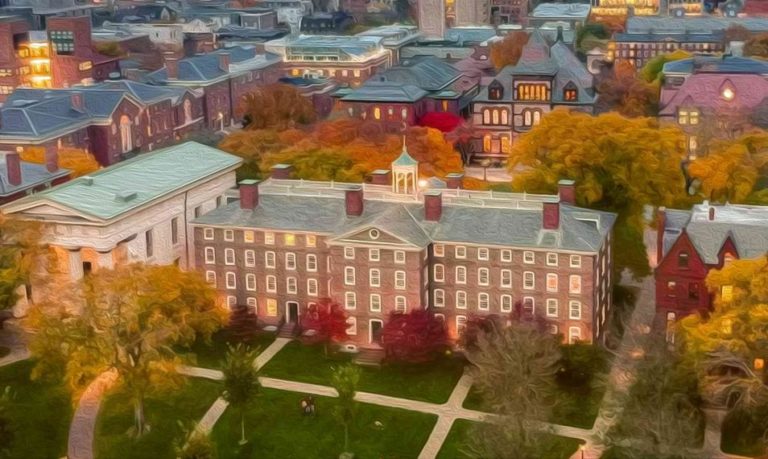
Brown University manages the Center for the Study of Slavery & Justice. In 2015, the Center established the Human Trafficking Research Cluster (HTRC). The research cluster is directed by Dr. Elena Shih, Assistant Professor of American Studies and Ethnic Studies. HTRC encourages collaborative research and cooperation.
Both undergraduate and graduate students are given research opportunities. Particular interest is given to how class, nation, race, gender and sexual powers and inequalities control anti-trafficking.
HTRC maintains partnerships with local and global sex worker rights organizations. In particular, HTRC has partnered with Rhode Islands only sex worker rights organization, COYOTE (Call Off Your Old Tired Ethics) RI.
One of the many benefits of this partnership includes a historic Rhode Island House Bill to study the impact of the 2009 decriminalization of indoor prostitution in the state.
Dr. Shih is the recipient of the 2020 Howard R. Swearer Engaged Faculty Award for Research.
HTRC has hosted several events in the past including:
- Fighting Human Trafficking and Labor Exploitation on U.S. Soil: Chinese Construction Workers in Saipan
- Whitewashing Abolition: Race, Displacement, and Combating Human Trafficking
- Global Explorations of Human Trafficking: Race and Labor
- Philippine Sex Worker's Collective and Global Anti-Trafficking Activism
University of Michigan, Ann Arbor
Ann Arbor, MI
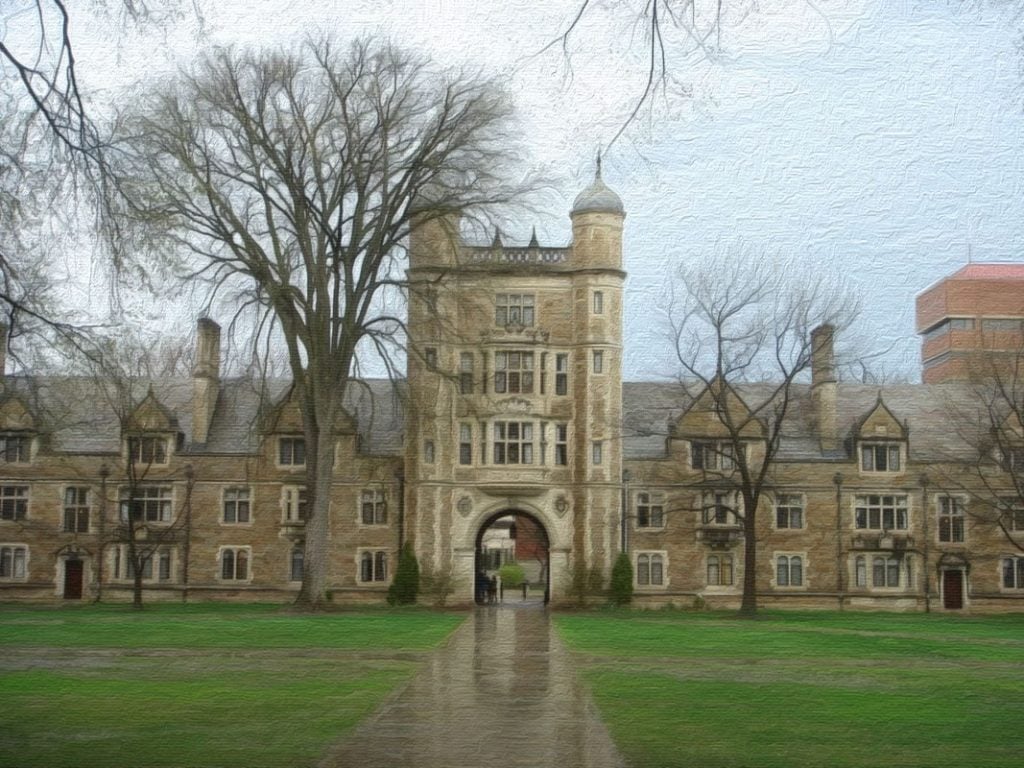
In 2009 the University of Michigan initiated the Human Trafficking Clinic (HTC). The first of its kind, HTC is a law program and fully functional law office with the sole focus of human trafficking. The clinic is directed by professor Bridgette Carr.
The clinic provides students with both domestic and international human trafficking case studies. Students have ample opportunity to practice advocacy skills and obtain real-world experience. Students can interact and network with those involved with human trafficking including law enforcement members and human trafficking survivors.
In addition to educational opportunities, HTC offers a plethora of direct legal services. All of the cases at HTC are managed by law students under supervision. Cases include a variety of aspects related to human trafficking including:
- Immigration
- Post-adjudication criminal relief
- Family
- Housing
- Access to public benefits
- Victim-witness advocacy
University of Houston
Houston, TX
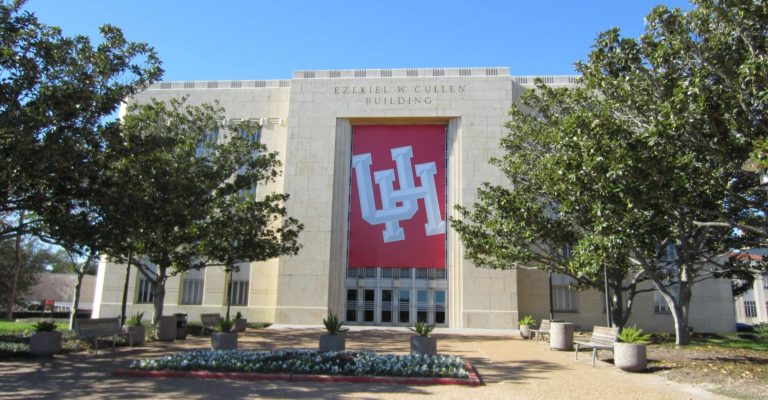
The Borders, Trade, and Immigration Institute, a Department of Homeland Security Center of Excellence, led by at the University of Houston focuses on research and education. The Institute focuses on these topics:
- Secure national borders
- Facilitate legal trade and travel
- Improve the integrity of the immigration system
The Institute brings together researchers from a multitude of disciplines for networking and information sharing. It is the hope of the Institute that through cooperative, multi-disciplinary study solutions will arise.
In regards to human trafficking, the Institute hosted a lunch-and-learn about human trafficking. Speakers at the event included:
- Alfonso Lopez de la Osa Escribano, PhD, director of the Center for U.S. and Mexican Law at the University of Houston Law Center
- Juhi Jain, MD, fellow with Emory University Children's Healthcare Hospital
- Edward Gallagher, JD, adjunct professor at University of Houston Law Center
- Sherri Lynn Zack, JD, Assistant US Attorney for the Southern District of Texas and Chief of the Human Trafficking Rescue Alliance
The panelists discussed the roles and responsibilities of the legal and medical professions in combating human trafficking. Some challenges addressed were the balance between patient confidentiality and the need to report a human trafficking case, the mental and physical health issues of human trafficking victims, and the evolution of the law.
Montclair State University
Montclair, NJ
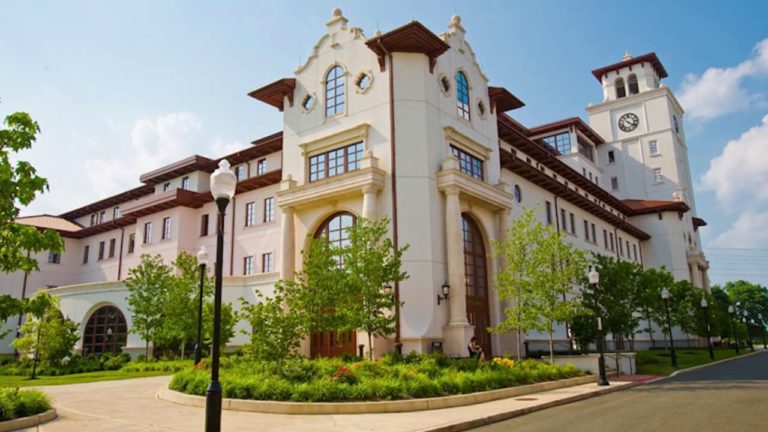
The Montclair Initiative on Global Human Trafficking wants to address and bring attention to all aspects of this global issue through education, law, art and research. Their vision is to play a leadership role in contributing significant knowledge, expertise and resources to the effort to end human trafficking.
The group's strategic areas of focus includes:
- Education and Training
- Research
- Advocacy Policy
- Networking and Sharing
- Victim Services
The group home page offers links for:
- Defining human trafficking - provides a definition and detailed statistical information
- Recognizing human trafficking - provides several signs to recognize a potential victim
- What you can do - the general public can help through being informed, reporting tips, and knowing their local resources
- The Resources and Partnership link provides local information for the state of New Jersey, global organizations, and links to several presentations and reports.
American University
Washington, D.C.
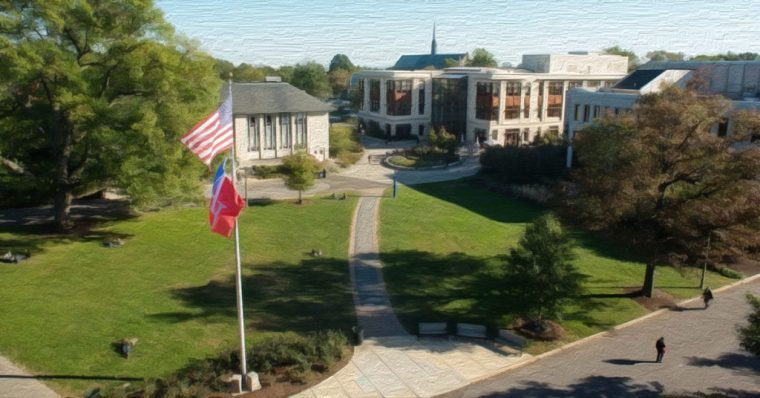
Professor Janie Chuang is on staff at American University's Washington College of Law. Chaung received her Bachelor of Arts in Philosophy and International Studies from Yale University. She went on to complete her J.D. at Harvard Law School where she graduated cum laude.
Chuang's areas of specialization are labor migration, human trafficking, and international law. In regards to human trafficking issues, Chuang has acted as an advisor to:
- The International Labor Organization
- The Organization on Security and Cooperation in Europe
- The United Nations
Chuang continues to be deeply involved in the human trafficking issue through the Freedom Network USA and the Modern-Day Slavery and Trafficking Working Group at Yale University. Any student interested in studying human trafficking would do well to consider studying under Professor Chuang.
Chuang is also a participant in the Interdisciplinary Project on Human Trafficking. The project brings together scholars and researchers from various backgrounds to highlight the different aspects of human trafficking.
The projects aim is to improve evidence-based research to inform effective policies that center around equality, human dignity, and justice.
Chuang is credited with several publications that have appeared in prestigious journals such as the UCLA Law Review, the American Journal of International Law, and the University of Pennsylvania Law Review.
Case Western Reserve University
Cleveland, OH
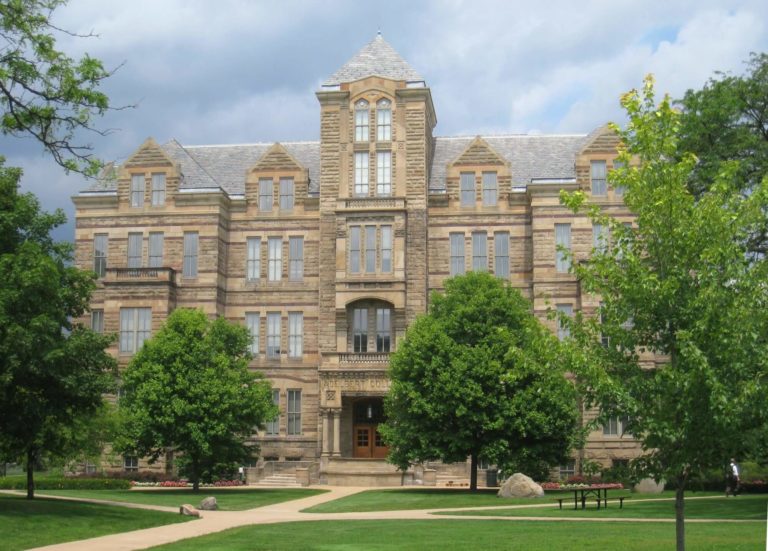
Case Western Reserve University's School of Law offers a Human Trafficking Program. Since 2015 the program has received funding from the Ohio Attorney General. In 2017 the program was a finalist in the "Liberator Awards" presented by S.O.A.P. ("Save Our Adolescents form Prostitution").
The program provides services to adults and children victimized by human trafficking and sex crimes. Additionally, the program strives to:
- Represent survivors of human trafficking in court
- Provide education
- Engage in effective outreach to communities of high risk individuals
The program offers an annual Human Trafficking Symposium with key note speakers and small group sessions. The goal of the Symposium is to develop interdisciplinary strategies to help the Northeast Ohio area.
Third year law students in the Human Trafficking Program are required to participate in the Health and Human Trafficking Clinic. This allows students to gain hands-on experience with representing clients and participate in community outreach.
Both second and third year law students in the Program have access to the Human Trafficking Lab. Some of the questions the lab explores are:
- Is it useful to think of trafficking as modern slavery
- Should sex work be legalized
- Why are we failing to prosecute perpetrators
University of Washington
Seattle, Washington
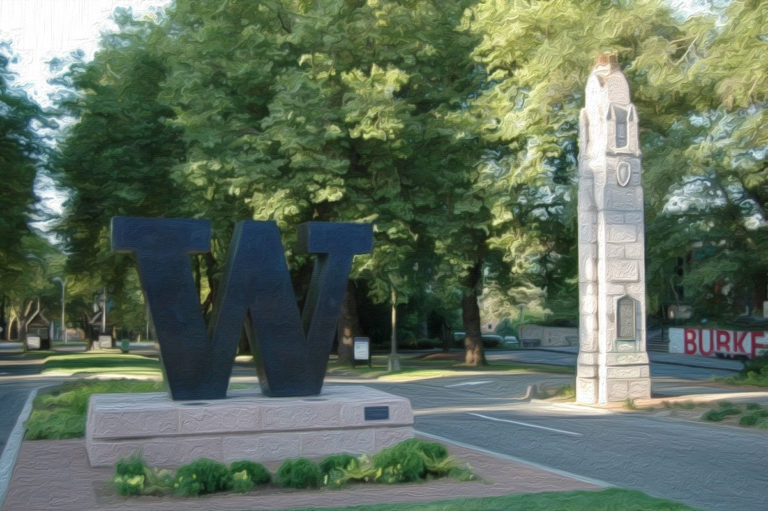
The University of Washington Alene Moris Women's Center has the broad vision of using education and advocacy to eliminate gender-based barriers. The Center runs several programs including:
- Alene Moris National Education for Women's Leadership
- Life Long Learning
- Violence Prevention and Gender Equity
- Anti-Human Trafficking Research & Policy Development
The University of Washington Alene Moris Women's Center was the first center to frame human trafficking as a public health crisis, and through innovative conferences, it led the efforts to convene the nation's first state task force against trafficking of human beings. In partnership with then State Representative Velma Veloria, the Center helped create the legislation to criminalize human trafficking in Washington State, the first state in the nation to do so. Since then, all 50 States have enacted criminal penalties for traffickers.
The Anti-Human Trafficking Research, Education, and Policy Development program is committed to collaborating with campus scholars, elected officials and community advocates to increase public awareness, advise state and local policy development, and research the contexts and consequences of forced labor, including sex trafficking.
The Center continually creates coalitions of all stakeholders working to eradicate this egregious human rights violations.
The program emphasizes research and the need for public awareness of the human trafficking issue. The program provides detailed statistical information, such as:
- 40 million people estimated to be victims of forced labor globally
- 71% of human trafficking victims are women and girls
- A list of common industries vulnerable to human trafficking
- 24-hour assistance hotline contact information
The Anti-Human Trafficking program offers collaborative workshops and speaking engagements. Some of the past events include:
- 21st Century Slavery: Human Trafficking and Sexual Tourism of APIs, UW
- Human Trafficking and Immigration Reform Workshop, UW
- Washington State Task Force Against Trafficking of Persons
- Washington Women's Foundation Human Trafficking Forum
To recognize its efforts, the Washington State Senate, House, and King County Council all honored the UW Alene Moris Women's Centers' 25+ years of anti-human trafficking work under Dr. Sutapa Basu's leadership - each with a declaration marking the Center's tremendous role in the local and national anti-human trafficking movement.
University of Baltimore
Baltimore, MD
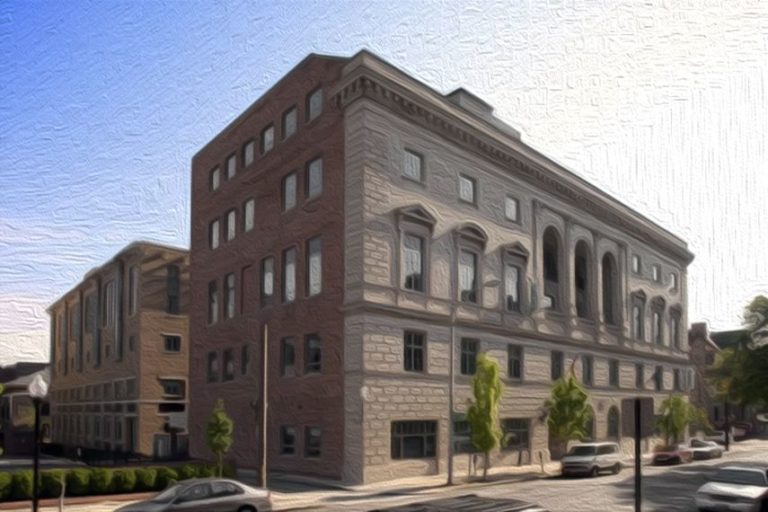
The University of Baltimore's School of Law manages the Human Trafficking Prevention project. Professor Jessica Emerson is the director for the project. The focus of the project is on human trafficking victims who have been prosecuted for their actions made under duress. There is a growing awareness of this issue.
The Human Trafficking Prevention project provides no-cost legal services to those who've criminal records from interacting in the sex industry.
The project is attempting to minimize the criminal consequences upon victims who are already experiencing trauma. A criminal conviction can lead to a loss of, or an inability to obtain safe housing, employment, and other services.
The Human Trafficking Prevention project fills six credits of clinic work for law students, and allows student attorneys to gain real-world experience.
Students have the opportunity to:
- Practice advocacy skills
- Develop strong, trauma-informed client interviewing skills
- Make connection in the criminal justice community
- Improve legal writing and oratory skills
Student applicants to the project are selected by a lottery system. Students interested in this program should know that the clinic requires a time commitment of approximately 20 hours per week.
University of Maryland, Baltimore
Baltimore, MD

The School of Social Work at the University of Maryland, Baltimore (UMB) maintains the Maryland Human Trafficking Initiative for Children & Youth (MHTI). The MHTI program is a collaborative effort to improve the state wide response to human trafficking. This three-year coordination project received its initial funding from the Department of Justice.
The MHTI program is run out of the School of Social Work's Ruth Young Center for Families and Children. Several other organizations have partnered with the University of Maryland, Baltimore in this initiative, including:
- The Maryland Human Trafficking Task Force
- Governor's Office on Crime Control and Prevention
- Maryland Departments of Human Resources and Juvenile Services
- U.S. Attorney's Office
- SAFE Center
- TurnAround, Inc.
- Healthy Teen Network,
- Baltimore Child Abuse Center
The goals of the program are to:
- Improve training of professionals most likely to come into contact with a trafficking victim
- Investigate trafficking cases with more coherent and multidisciplinary teams
- Improve services, including nonprofit organizations, that can provide a holistic approach to healing a traumatized victim
Loyola University at New Orleans
New Orleans, LA
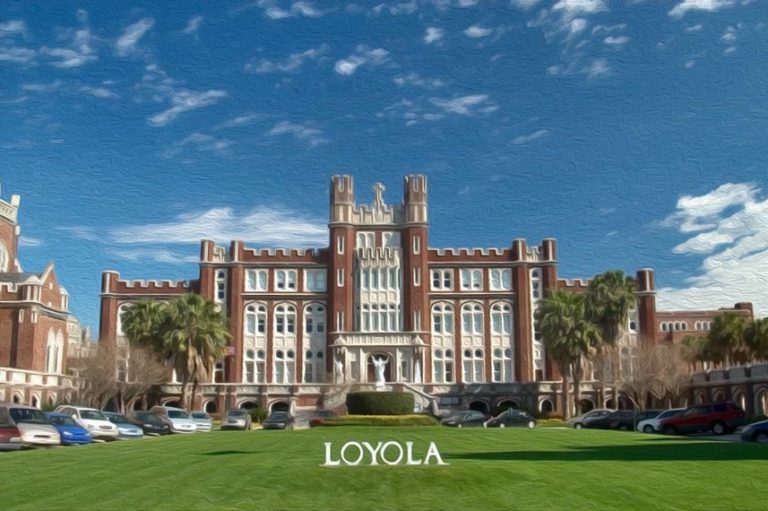
Loyola University's Modern Slavery Research Project is a ground breaking study. To produce this project, researchers from Loyola worked in conjunction with the University of Pennsylvania's Field Center for Children's Policy, Practice and Research, along with Covenant House International. Covenant House is a non-profit that provides safety and housing for youth who are at risk for homelessness.
This project, directed by Laura Murphy, involved researchers interviewing 641 youth who were clients of Covenant House. The youth were between 17 and 24 years old. A screening tool, the "Human Trafficking Interview and Assessment Measure" (HTIAM-14) was used by researchers to standardize interviews.
Findings from the Project include:
- Of the 641 interviewees, 92 had been trafficked for sex
- 30 interviewees who identified as LGBTQ were trafficked for sex
- 193 of all youth interviewed had engaged in some way in the sex trade at some point
- 52 interviewees has been labor trafficked, most of which was in relation to drug trafficking work
- 22 interviewees were trafficked for both sex and labor
- The majority of trafficked youth (91%) reported being offered a fraudulent work opportunity that turned into trafficking
Economic factors emerged as one of the primary indicators of vulnerability to the trafficking industry. Identifying as LGBTQ or aging out of the foster care system were also strong indicators of vulnerability.
The study recommends a four-pronged approach to fighting back:
- Prevention
- Outreach
- Confidential Identification
- Specialized Interventions
University of Pennsylvania
Philadelphia, PA
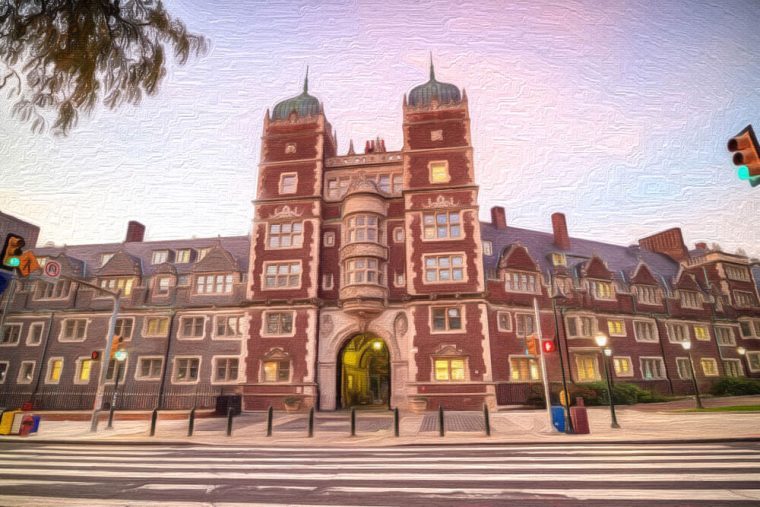
The University of Pennsylvania's Field Center for Children's Policy, Practice and Research, with Managing Director Johanna Greeson, produced ground breaking research on the correlation between homeless youth and human trafficking.
They worked in conjunction with Covenant House International and Loyola University New Orleans. Covenant House is a non-profit that helps with providing housing to youth who are otherwise at risk of homelessness.
One of the largest studies to date, researchers interviewed over 900 youth between the ages of 17 and 25, who stayed at the Covenant House. The researchers focused on the Philadelphia, Washington, D.C., and Phoenix areas.
In addition to homelessness, welfare-related factors were taken into consideration including any history of abuse, and out-of-home placement.
Findings include:
- Of the homeless youth interviewed, 20 percent were victims of some form of trafficking
- 41 percent were approached on their first night of homelessness
- 17 percent experienced sex trafficking and six percent experienced labor trafficking
- 14 percent participated in trafficking to meet basic survival needs of food or housing
- 95 percent had a past history of child abuse or neglect
- 41 percent of sex trafficking victims had at least one out-of-home placement experience
- 67 percent of sex trafficking victims did not graduate high school
- Over half were homeless at some point before the age of 18
- A large portion of sex trafficking victims identified as LGBTQ
Department of Homeland Security Phone Numbers for Reporting Human Trafficking
- Federal Law Enforcement: 1-866-347-2423
- National Human Trafficking Hotline: 1-888-373-7888
Government Agencies Fighting Human Trafficking
United States:
- Bureau of Justice Assistance
- U.S. Department of Health and Human Services
- U.S. Customs and Border Protection
- U.S. Immigration and Customs Enforcement
U.S. Immigration and Customs Enforcement (I.C.E.)
(I.C.E.) is a federal government agency that is, as the name implies, responsible for enforcing immigration and customs policing and policies. As part of these duties, they are heavily involved in combating human trafficking in the U.S.
I.C.E.'s Most Wanted Human Traffickers List.
The national hotline for I.C.E. is 1-866-DHS-2-ICE (TTY for hearing impaired: 802-872-6196). Call if you have information about human trafficking.
Department of Homeland Security
The Blue Campaign is designed to raise public awareness and train law enforcement and the public to better detect and respond to human trafficking.
The Internet Crimes Against Children Task Force consists of 61 task forces across the U.S., comprised of over 4,500 individual federal, state, local law enforcement, and prosecutorial agencies. Their purpose is to protect children from abuse that may occur through the internet. To this end they train law enforcement, partner with similar groups, and work to prosecute violators.
International Agencies:
International Labour Organization (ILO)
ILO is part of the United Nations, and consists of 187 member states. The ILO stated purpose is:
"[T]o set labour standards, develop policies and devise programmes promoting decent work for all women and men."
ILO
To this end, they have implemented the Forced Labor Protocol, which member states are obliged to adopt and enforce.
- See the Global Slavery Index
Private Agencies:
- Operation Underground Railroad: O.U.R. is a non-profit organization started in the U.S., whose mission is to combat human trafficking, at home and abroad. Led by Tim Ballard, an American private citizen, O.U.R. has domestic and international offices. O.U.R. partners and works in tandem with American and foreign nations to combat human trafficking.
